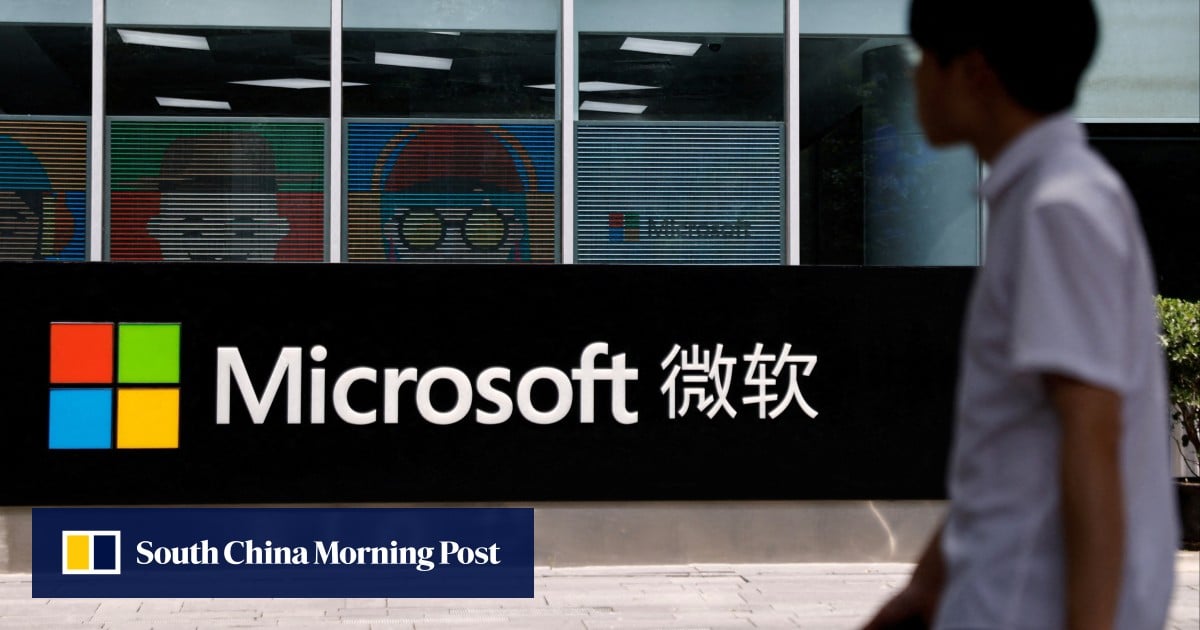Microsoft defended its request for all mainland China-based employees to use iPhones at work, saying it is necessary due to the absence of Google’s Android services there, after the decision triggered speculation over the company’s intent.
As part of its global cybersecurity initiative to fend off worldwide hackers, the US tech giant has started requiring all employees in mainland China to verify their identities through the Microsoft Authenticator password manager and Identity Pass apps, available on Apple’s App Store and Google Play only.
Microsoft plans to offer Apple’s iOS devices to employees so they can access those apps because of the “lack of availability of Google Mobile Services in this region”, a company representative said on Tuesday.
Google Mobile Services – a collection of Google apps and other tools, such as Play, Search, YouTube and Gmail – are blocked in mainland China.
Microsoft employees in the country who are currently using Android handsets will be given an iPhone 15, according to Bloomberg, which first reported the news on Monday.
The move by Microsoft shows the challenges faced by multinational companies when operating in a global technology sphere divided between US and Chinese systems.
Google pulled its search engine out of mainland China in 2010 after it refused to follow domestic censorship regulations. Since then, users of Android devices in the country cannot access the vast majority of Google services, relying instead on domestic alternatives, including app stores run by local companies.
Microsoft, on the other hand, has been operating in the country since 1992, providing access to its 365 Office suite, search engine Bing and Azure cloud computing services, while adapting to Beijing’s growing regulatory demand over data security, as well as intensifying competition with local rivals.
At home, Microsoft is contending with growing political scrutiny amid rising US-China tensions.

While Microsoft maintained that its switch to iOS devices is based on practical reasons, it still caused an uproar among patriotic Chinese social media users who favour local brands.
A Weibo post describing Microsoft’s new rules has drawn 27,000 comments, with one user commenting that the company has set a precedent for foreign firms to ban the internal use of Chinese Android smartphones.
Another user questioned Microsoft’s decision, suggesting that the company should consider HarmonyOS, an Android alternative developed by Huawei Technologies.










